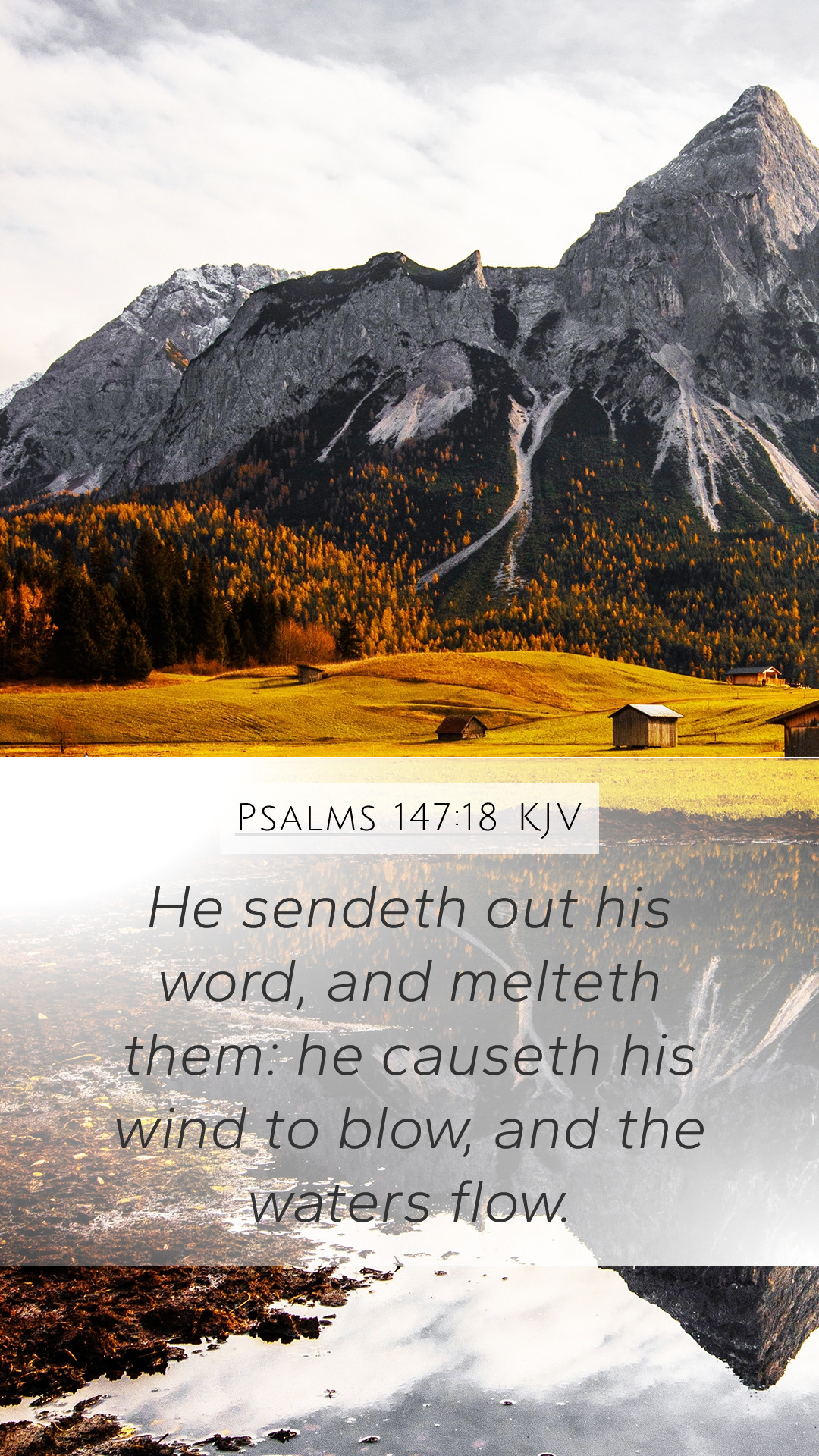Bible Verse Meaning and Interpretation of Psalms 147:18
Psalms 147:18 states: "He sends out his word, and melts them; he causes his wind to blow, and the waters flow." This verse carries significant meaning within the context of God’s power and His providence over natural elements.
Understanding the Verse
The verse highlights two actions of God: sending forth His word and commanding the elements of nature. The imagery used here illustrates a profound understanding of divine sovereignty:
- God's Authority: The phrase "He sends out his word" emphasizes God's power. In scripture, God's word represents His commands that carry authority and purpose.
- Divine Control over Nature: The second part of the verse signifies God’s control over natural phenomena, suggesting that He can manipulate creation according to His will.
- Transformation: The melting of elements through His word implies transformation, which can signify change in human hearts and circumstances as influenced by divine intervention.
Commentary Insights
Insights from renowned public domain commentaries add depth to our understanding:
- Matthew Henry: He emphasizes God’s omnipotence and the efficacy of His word, which is able to bring about change in the world. He sees it as a reminder of God’s providence in the affairs of mankind.
- Albert Barnes: Barnes interprets this verse in the light of God’s sustaining power over creation, illustrating that the very forces of nature respond to God's command, showcasing His sovereignty.
- Adam Clarke: Clarke speaks to the poetic nature of the psalm, recognizing the imagery as a representation of God’s providential care and the responsiveness of creation to divine will.
Biblical Exegesis
In an effort to perform a biblical exegesis on Psalms 147:18, we find that this verse serves as a testament to God’s ongoing relationship with His creation. The act of sending His word is reflective of continual communication and interaction between God and the world. This echoes themes present throughout Scripture such as:
- God's Word as Creative Force: Similar to the creation account in Genesis 1 where God speaks and things come into being.
- Control over the Seas: Passages like Psalm 107:29, which discusses God's ability to still the storm, resonate with the themes of this verse.
- Divine Providence: Proverbs 21:1 illustrates the heart of a king is in the hand of the Lord, symbolizing God's control and influence over all.
Sermon Application
For those engaged in Bible study groups, understanding the application of this verse can guide discussions about God’s present-day influence in our lives:
- Trust in God’s Power: Emphasize the importance of trusting God's word as powerful and capable of change, both in personal lives and broader circumstances.
- God as a Sustainer: Encourage participants to reflect on God’s sustaining nature through various life storms and how He can calm their worries.
- Role of Scripture in Life: Discuss the significance of engaging with Scripture, recognizing it as a means through which God actively communicates and acts in the world.
Cross References
This verse directly relates to other areas of Scripture that emphasize God’s control and ability to effect change:
- Psalm 107:29 - "He made the storm be still, and the waves of the sea were hushed."
- Genesis 1:3 - "And God said, ‘Let there be light,’ and there was light."
- Proverbs 16:1 - "The plans of the heart belong to man, but the answer of the tongue is from the Lord."
Conclusion
Psalms 147:18 serves as a powerful reminder of God's supreme control and the effective power of His word. By exploring these insights, individuals are encouraged to deepen their understanding of Scripture, appreciate the nuances of Bible verse meanings, and engage more fully in their Bible study resources. Whether through online discussions or personal study, the exploration of such verses fosters a richer relationship with God and His creation.


